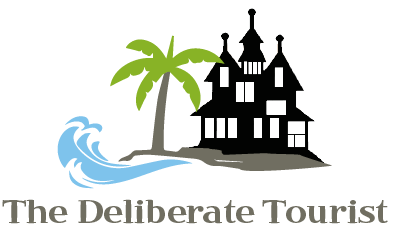Yes, here I am again on yet another of Georgia’s barrier islands. I’ve been coming to Jekyll Island for over 20 years now, and it is by far my favorite of the barrier islands. Fortunately for me, it is only about 1 1/2 hours drive from my home in Savannah, Georgia.
As with many of the barrier islands, Native Americans visited for hunting and fishing but did not live on the island. The first permanent residents were part of General Oglethorpe’s original group that settled Georgia in the early 1700’s. In 1733 William Horton settled here and began raising cotton, rice, and other crops with the help of slaves. Horton House is one of the oldest surviving structures in Georgia. The land passed through many hands over the next 100 years, but the island remained isolated and the number of permanent residents was small.
But then in 1879 Jekyll Island’s fortunes changed forever when some rich and influential business tycoons bought it for a hunting lodge. It quickly became a favorite winter location, and in 1886 the Grand Hotel was built. The tycoons formed a club, and began developing the island. Some of the richest and most influential men of the 19th century were part of the Millionaire’s Club: Marshall Field, J.P. Morgan, Joseph Pulitzer, William Vanderbilt, William Rockefeller, Vincent Astor, and other recognizable names such as Macy, Goodyear, and Gould. It was a thriving community in the winter months, and many substantial homes were built. It remained exclusive as it was only accessible by boat. All continued until WW1, when it became hard to get servants and supplies. By the start of WW2 the heyday of the Millionaire’s Club had passed.
In 1947 the State of Georgia purchased Jekyll Island and it has been a state park ever since. It is very well administered and the state has found a good balance between preserving its natural state and developing its resources. There is a state-of-the-art Convention Center, and a number of hotels and restaurants and shops clustered around the Convention Center. There are also several hundred private homes on the island that were there when the state purchased it. No new homes are allowed to be built. Much of the island is natural and wild, and there are miles of beautiful beaches. It really is a special place.
-

Welcome to Jekyll Island.
-

The beginning of the causeway. It is about 10 miles long, and would not be allowed to be built today, for environmental reasons.
-

Great Dune Beach is beautifully landscaped.
-

The Convention Center.
-

The dunes for which the park is named.
-

A shrimp boat on the horizon.
-

Horton House - 1733
-

The Grand Hotel
-

Some of the "cottages" built by members of the Millionaire's Club.
-

-

-

-

-

-

They built along the river rather than on the oceanside of the island.















